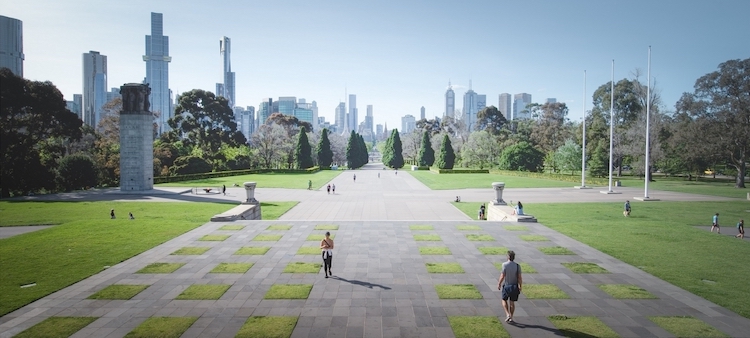UNEP and Other Organisations Support the Call
By J C Suresh
TORONTO (IDN) — Cities are on the front line of the socio-economic impacts of climate change and ecosystem loss. They play a significant role in view of the planet experiencing a decline in nature at rates unprecedented in human history—and the largest loss of animal and plant species since the dinosaurs.
Mayors from 15 cities around the world have therefore availed of the biodiversity conference in Montreal—the largest city in Canada’s Québec province—to call for increased direct financing to enable them to implement greening and ecosystem restoration projects.
The international gathering in Montreal is the 15th Conference of the Parties (COP15) to the United Nations Convention on Biological Diversity (CBD), being held from December 7 to 19.
“Cities around the world, like Barranquilla, are acting decidedly to protect their ecosystems, address the impacts of climate change, and improve the well-being of their citizens; however, more partners and resources will be needed to successfully scale financing nature in cities” said Jaime Pumarejo Heins, Mayor of Barranquilla, Colombia.
“Today, we make a call for increased financing for cities to take action on nature. Let’s work together, international community and local authorities, hand-in-hand, to take this message forward to Davos next month (January 2023) and unleash the power of nature in cities and meet global biodiversity and sustainability goals.”
“Investment in Nature is the only way forward for building climate resilient sustainable cities” commented Barrister Sheikh Fazle Noor Taposh, Mayor of the Dhaka South City Corporation in Bangladesh.
The call at the UN Biodiversity COP15 came from the Mayors of Athens, Austin, Barranquilla, Dhaka-South, Freetown, Kampala, Kigali, Quezon City, Melbourne, Miami-Dade, Monterrey, Montreal, Paris, São Paulo and the Secretary of the Environment of the Government of Mexico City.
It was backed by the UN Environment Programme, ICLEI, C40 Cities, World Economic Forum (WEF), Global Environment Facility (GEF), Climate Policy Initiative’s CCFLA, the University of Pennsylvania, Cities4Forests and UrbanShift.
“Cities are at the front line of taking transformative and innovative action for biodiversity, yet they do not have direct access to appropriate finance instruments. Despite the clear benefits, cities currently invest less than 0.3% of their infrastructure spending on nature-based solutions, which is equivalent to around $28 billion,” said Kobie Brand, Deputy Secretary General of ICLEI and Global Director of ICLEI’s Cities Biodiversity Center.
The global CitiesWithNature and RegionsWithNature initiatives provide vital platforms for connecting and showcasing innovative solutions, but we need the finance and private sectors to take hands with government to facilitate a shift towards a more enabling environment for investment in nature-based solutions, and to make it easier to access investment at scale in cities, added Ms Brand.
“Ecosystem restoration and nature-based solutions are fundamental for cities to address challenges related to climate change, biodiversity loss and human health. The Mayors’ Call is a testimony of political commitment by cities to act and become hubs for innovative, transformative solutions,” noted Aloke Barnwal, GEF’s Coordinator of Sustainable Cities.
The Global Environment Facility is pleased to collaborate with cities globally to advance integrated approaches that put nature at the core of sustainable urban growth, he assured.
Supporting the call, UNEP’s Economy Division’s Director Sheila Aggarwal-Khan said: “Cities must be part of the solution to the biodiversity crisis”. She expressed the hope that their “call for increased, direct investment will not fall on deaf ears so that they can unleash the power of nature in cities.”
According to UNEP’s 2022 State of Finance for Nature, present finance flows to nature-based solutions must double by 2025 and triple by 2030 to halt biodiversity loss, limit climate change to below 1.5C and achieve land degradation neutrality, and resilience to climate impacts such as heatwaves and flooding. These investments should support restoration efforts by sub-national governments.
The mayors urged the finance community and national governments for reform of financial infrastructure and greater direct collaboration with the private sector. This would equip cities to fund nature-based solutions, such as forests, green belts, water streams, and parks in and around urban areas.
Up until now, funding for nature infrastructure solutions has gone to national governments, which then distributes it to cities and regions, they
Responding to the call from Mayors, UNEP and partners launched a new project to support cities in taking action for nature and contribute to the UN Decade on Ecosystem Restoration. This project, funded by the German Federal Ministry of Economic Cooperation and Development, will run for three years (2023-2025) to inform, inspire, and enable policy makers, practitioners, businesses, and finance institutions to promote ecosystem restoration in cities.
“We urgently need to reinvent cities as a place for well-being, rich urban biodiversity, and climate resilience. Therefore, we are pleased to be partnering with UNEP for the coming three years to catalyze restoration and nature-based solutions in finance, employment and urban planning and support cities to become champions of urban biodiversity and resilience within healthy social and planetary boundaries.“ Heike Henn, Director for Climate, Energy and Environment of Germany’s Federal Ministry for Economic Cooperation and Development (BMZ).
The UN Environment Programme is the leading global voice on the environment. It provides leadership and encourages partnership in caring for the environment by inspiring, informing and enabling nations and peoples to improve their quality of life without compromising that of future generations. [IDN-InDepthNews — 13 December 2022]
Image credit: Pexels
IDN is the flagship agency of the Non-profit International Press Syndicate.
We believe in the free flow of information. Republish our articles for free, online or in print, under Creative Commons Attribution 4.0 International, except for articles that are republished with permission.

